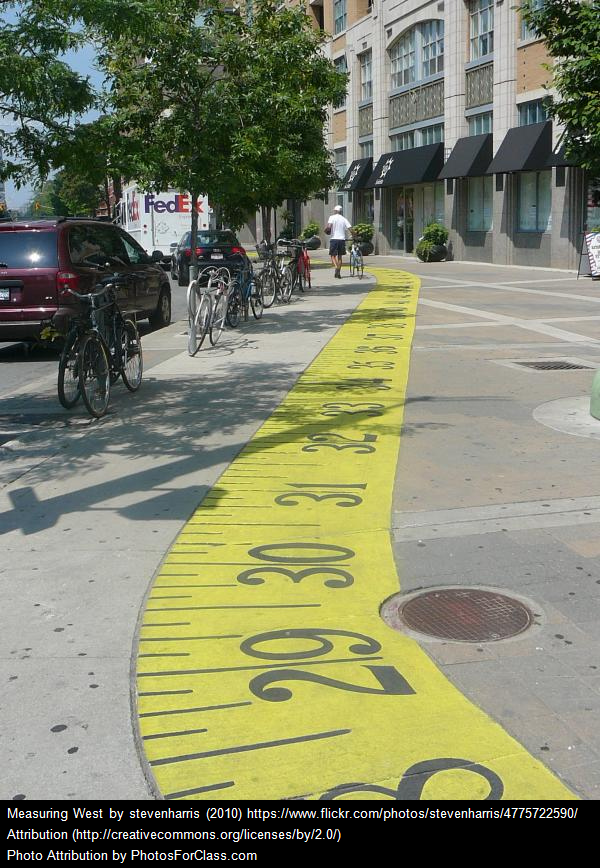I’ve written a lot about research that finds having students self-assess regularly and see their own improvement can be a great self-motivating strategy.
There are lots of ways to apply that idea in the classroom: having students compare essays they wrote at the beginning of the year to those they write several months later; having them check-off which words on a list they know or don’t know prior to a beginning a unit, and then having them revisit the list at the end, etc. I’ve also had students record themselves reading a text, upload it to our class blog, and then have them make another recording months later.
Another online way to implement this strategy is through the multiple simple and free “tests” that are available for students to evaluate their English-language level. I’ve had students take one at the beginning of the year, in the middle, and at the end. Obviously, there’s a lot of question about the accuracy of the results. However, I don’t really care. The important thing, for my purposes, is for students to take the same test more than once and see how much they’ve improved. Whether or not the language “level” the test uses to identify the student is not relevant to that goal.
I’ve used the ones at the top with students, and hope to try out the latter ones in the future. I’d love to hear feedback from readers about these and others:
The British Council has just unveiled an online assessment. Since it’s the British Council, you know it’s got to be good.
Test Your Vocab is an online tool where learners can get a rough estimate of how many words they know in English.
Vocabulary Size works in a similar way.
Test Your English from Cambridge.
Reader Miss H recommends Read Theory.
Speak and Improve is a new assessment that’s available from Cambridge. I think it could work well as an assessment tool students could use to measure their speaking improvement.
English Level Test is from ELT Buzz.
Base English looks like an excellent free site to find lessons for ELLs. They’re divided by proficiency level, include videos, and gap-fills (clozes) you can use with them. It also has a good online test learners can use to identify their English level. It was created by Elton LaClare, a professor in Japan.
Perception of Spoken English (POSE) Test seems like a useful listening assessment.
What are your other suggestions? Do you think any of the tests I have on the list should be dropped?




“The British Council has just unveiled an online assessment. Since it’s the British Council, you know it’s got to be good.”
Full disclosure: you work for them 🙂
I found this to be less than accurate. I am a professional teacher, native speaker and Cambridge examiner and I got a B2….?! Have I missed something?
As I mentioned in the post, I don’t really care if they provide an accurate reading of English proficiency. What’s important is that students can use them to show progress.
I also don’t receive any financial compensation for my British Council posts, so I don’t believe I work for them.
Thanks for responding to my post. I won’t distract you further about my own reservations for now 🙂
As you say “What’s important is that students can use them to show progress” and on that I certainly do agree with you.
Hi jwag, I think you’ll find that it doesn’t specify B2, it says ‘upper intermediate or above’ and recommends trying materials at B2 and C1 (the highest level of materials currently available on the LearnEnglish website) to decide which are most suitable. Given the limitations of online testing of this kind, I’d say that’s a sensible position to take. Full disclosure though, unlike Larry, I DO work for the British Council, although I’m not involved in any way with this test.
I also am an English teacher, though not as good as you are, apparently. I got 79%. Intermediate. This test was definitely designed for British English education.
Anglia also has a good online placement test for vocabulary and use of English.
http://anglianetwork.eu/practice/placement-test/
I use http://www.readtheory.org with my students, as well as the web-version of dialang!
jwag, note that the feedback at the end of the test says, “Your level is approximately upper intermediate OR ABOVE” (my caps) – so perhaps the test ceiling is B2/C1 and higher-level learners should use a different tool.
Perhaps that should be made clear (or clearer than it is)?
Thanks. I’ll look at it again, though, off the bat, I’m not quite sure how much more clear I can be than saying, as I do in the post, that “I don’t really care” about the accuracy of the English level results 🙂
Thank you! I’m taking online English lessons via Skype at Preply.com and sometimes https://h2o.law.harvard.edu/text_blocks/26211 but I don’t really know how to measure my progress. Thanks for this!